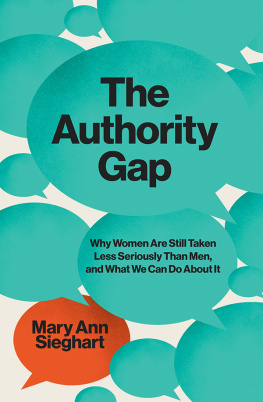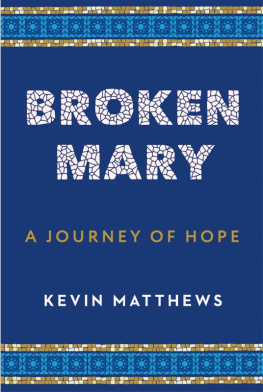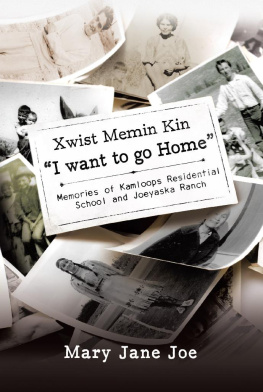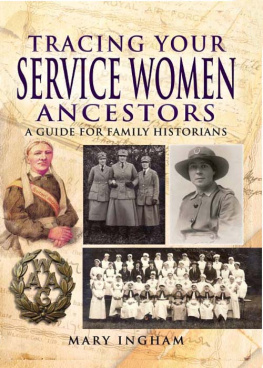Divided Paths | Common Ground
 The Founders Series
The Founders Series
Divided Paths | Common Ground
The Story of Mary Matthews and Lella Gaddis,
Pioneering Purdue Women Who
Introduced Science into the Home

Purdue University Press, West Lafayette
Copyright 2011 by Purdue University. All rights reserved.
Library of Congress Cataloging-in-Publication Data
Klink, Angie, 1959
Divided paths, common ground: the story of Mary Matthews and Lella Gaddis, pioneering Purdue women who introduced science into the home / Angie Klink.
p. cm. -- (Founders series)
Summary: The book is about the accomplishments for women achieved by Purdue Universitys first dean of the School of Home Economics, Mary Matthews, and the first state leader of Home Demonstration, Lella Gaddis-- Provided by publisher.
Includes bibliographical references and index.
ISBN 978-1-55753-591-7 (pbk.)
1. Matthews, Mary Lockwood, b. 1882. 2. Gaddis, Lella. 3. Purdue University--Faculty--Biography. 4. Women deans (Education)--United States--Biography. 5. Purdue University--History--20th century. 6. Home economics--Study and teaching (Higher)--United States--History--20th century. I. Title. II. Series.
LD4672.K55 2011
378.00922--dc22
[B]
2011001716
Cover design by Natalie Powell.
Back cover photograph by Jack Klink.
To Steve, Jack, and Ross, my common ground

Within these pages every night,
Brief memories of the day I write;
A little word, a single line,
Is jotted in this book of mine
Not mighty deeds, just common things,
The tasks and pleasures each day brings.
And yet I hope that when I look
Over the pages of this book,
Twill be (and, if so, Im content)
The record of five years well spent.
Eloise Wood, Wards A Line A Day, Five Year Diary,
from the collection of Kate Gaddis (1923-1927;
1928-1932; 1933-1937)
Contents
Preface
Divided Paths, Common Ground is a rare occasion. It is a whisper from the past as we are privy to the day-to-day details of a woman who lived during the first part of the twentieth century. Bertha Kate Gaddis, a teacher, wrote in her line-a-day diaries for forty years, recording the minutiae of her world while also lifting up, like a bauble to the light, the historic events in America that painted her backdrop. Divided Paths, Common Ground invites the reader to pull up a kitchen chair and sit down with Kate and her sister Lella Reed Gaddis, Indianas first state leader of home demonstration agents in Purdues Department of Agricultural Extension, and gather snippets of their lives that swirled amid remarkable happenings in the United States from the 1910s to the 1940s. It was a time of startling change, especially for women, and Kates journals reveal how a small enclave of the country experienced those changes.
Ultimately, this book is about Lella Reed Gaddis and her contemporary, Mary Lockwood Matthews, the first dean of the School of Home Economics at Purdue University, but many layers of a bygone era surround their life stories. Another extraordinary woman in Divided Paths, Common Ground is Marys adoptive mother, Virginia Claypool Meredith, the first woman to serve on the Purdue University Board of Trustees. In 1882, Virginia became a widow at age thirty-three and chose to take over the operation of her late husbands 115-acre ranch with prize shorthorn cattle and Southdown sheep. She was a woman light years ahead of her time as a lady farmer and as a late-in-life single mother.
I extend a thank you to Miriam Epple-Heath, the great-niece of Lella and Kate Gaddis, for her insights into the personalities of her aunts and entrusting me with Kates diaries. The day Miriam handed me an old shoebox and I peered inside to see eighteen leather-bound journals, I had no idea of the historical significance and new friendship that waited within.
I also thank Eva Goble, dean emeritus of the School of Home Economics at Purdue University. Dean Goble invited me to lunch on several occasions, and her stories of the strivings of women in Indiana and at Purdue, along with her memories of Mary Matthews and Lella Gaddis, add an additional spark to Divided Paths, Common Ground. At this writing, the last time I met with Dean Goble, she told me she was one hundred and a half. We were walking down the hall of her retirement home. She stopped, peered into the exercise room, and said, Oh good. No one is in there. Ill come down later and workout.
Over a period of five months, I read Kates diaries, sentence by sentence, day by day, year by year. The more I read, the more humbling became the experience of writing Divided Paths, Common Ground. Kate wrote her last lines in 1946 at Christmastime, and I read those final diary words sixty-four years later as the snow fell and my Christmas tree lights shimmered. Divided Paths, Common Ground depicts the lives and accomplishments of Lella Reed Gaddis, Bertha Kate Gaddis, Mary Lockwood Matthews, Virginia Claypool Meredith, and, in essence, all women of any time. Kate set this book aglow, pulling us along her timeline as we gather bits of lore along the way. I thank her, and I miss her.
Angie Klink
There is a radiance where women move
Above small household tasks if they but see
Beyond the polished surface of old woods
The dazzling triumph of a living tree,
If they but see beyond the white, heaped flour
Beyond the red, glassed jellies on a sill
Wide joyous wheat fields laughing in the sun;
Gods face above an orchard on a hill.
Printed in Lella Gaddis Portrait Presentation
Program, January 16, 1941
Fork in the Road

It is the heart of the night. The stars and moon illuminate the dusty roads. Few gaslights burn at this hour. The Purdue Ag Boys hook up the team to the wagon and climb aboard. Time to take what they deem is rightfully theirs. The clop-clop of the horses and rumbling of the wagon break the silence of the campus as they make their way across State Street to Ladies Hall where, by day, the women students attend their home economics classes.
Once in the building, the Ag Boys find the womans desk and files. To the wagon they carry the office furniture and each paper and record they believe should belong on their side. They hurry aboard the wagon, give a yank to the reins, and the horses move the office of Miss Lella Gaddis, the new state leader of home demonstration, to the Ag side.
The next day, Miss Gaddis reports to the Department of Agricultural Extension at Purdue University. She no longer works for the Department of Household Economics headed by Miss Mary Matthews. When Miss Matthews discovers her Home Demonstration Agent has been stolen from her, she is incensed. She believes the new position of state leader of home demonstration should be in her realm. The men in the Agricultural Department believe Lella Gaddis should work in the newly forming Extension Service.
It is then, in 1914, that the paths of Lella Reed Gaddis and Mary Lockwood Matthews are divided. Yet in the years to come, they will politely walk the same direction, intersect in the same circles, and forge new trails for women at Purdue and throughout Indiana, but always with watchful eyes upon one another.
Next page








 The Founders Series
The Founders Series


